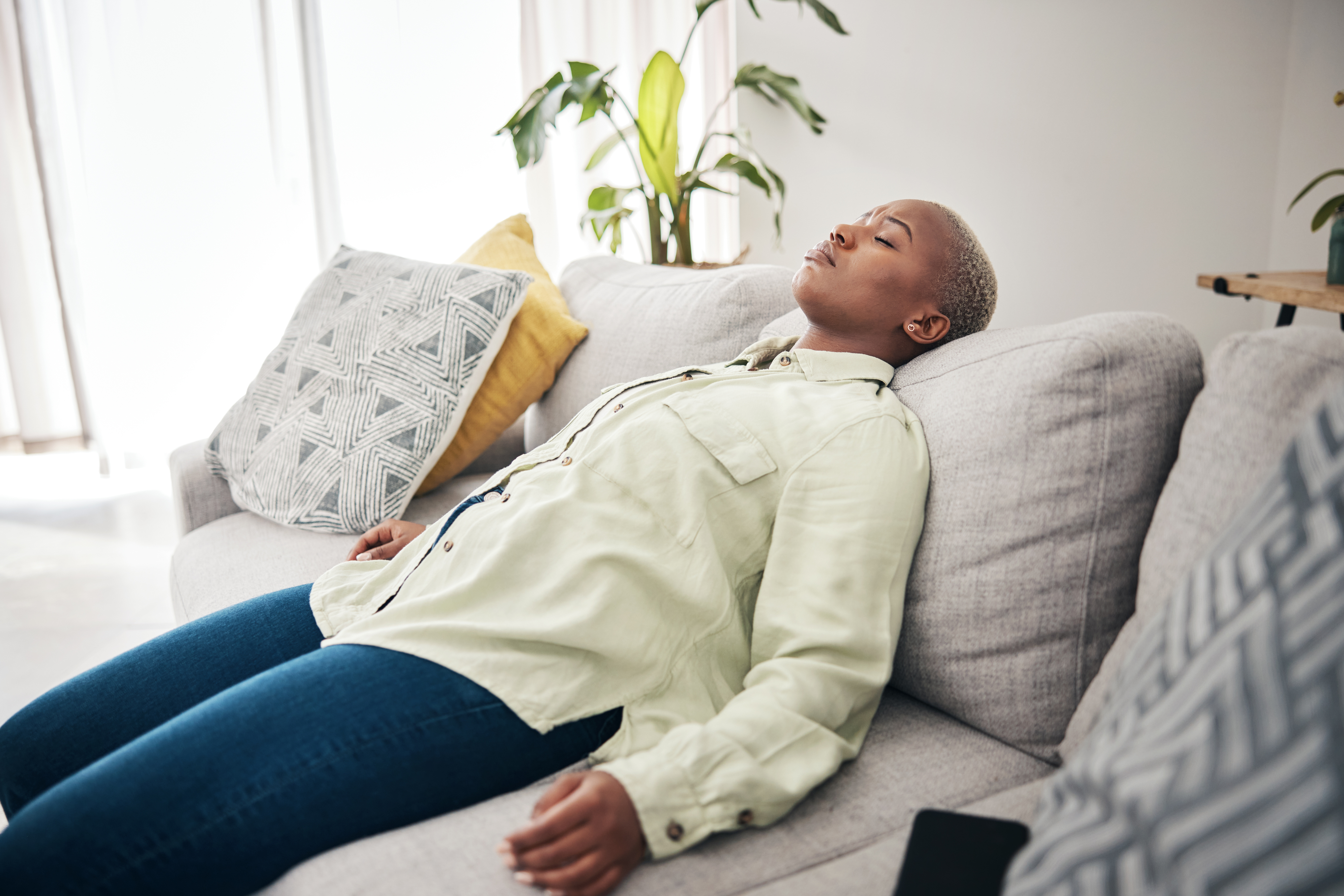
Millions of women worldwide navigate the natural transition into perimenopause and menopause, often encountering a spectrum of physical and emotional changes. Among these, sleep disturbances like insomnia and hot flashes pose significant challenges, impacting quality of life and well-being. While various factors contribute to this disrupted sleep, the decline in estrogen, specifically estradiol, plays a key role.
As the Senior Associate Medical Director at Nava Health, I have over twenty years of medical experience specializing in women’s health. I understand the critical need to manage the connection between estradiol and sleep. Addressing this hormonal shift can alleviate sleep issues and become crucial for empowering women during this life stage.
The Connection Between Sleep and Hormones:
Our sleep-wake cycle follows an internal rhythm orchestrated by the hypothalamus, a portion of the brain sensitive to light and hormones. In women, estrogen, primarily estradiol, acts as a conductor, influencing various processes that lead to restful sleep.
During the reproductive years, estradiol promotes the release of neurotransmitters like GABA, essential for sleep initiation and maintenance. It also regulates body temperature, helping prevent disruptions triggered by hot flashes.
The Fallout of Declining Estradiol:
As perimenopause sets in, ovarian function fluctuates, leading to unpredictable dips in estradiol levels. These fluctuations disrupt the delicate sleep-wake balance, causing various sleep disturbances:
- Night sweats and hot flashes: Estradiol’s thermoregulatory role diminishes, triggering sudden surges in body temperature and sweating, often leading to awakenings.
- Difficulty falling asleep: Declining GABA levels due to reduced estradiol make it harder to initiate and maintain sleep.
- Early morning awakenings: Estradiol’s influence on cortisol, a stress hormone, weakens, potentially causing premature wakefulness.
- Fragmented sleep: The combined impact of these factors results in a lighter, less restorative sleep with frequent awakenings.
Sleep disruption during menopause, caused by hot flashes, night sweats, and hormonal shifts, often leads to daytime fatigue. This fatigue can be particularly inconvenient for women in this age group, who often juggle work, family caregiving, and other responsibilities. The constant tiredness can make it difficult to concentrate, manage busy schedules, and maintain an active lifestyle.
Getting Back to Sleep with Estradiol Therapy:
Bio-identical hormone replacement therapy (BHRT), specifically estradiol supplementation, has emerged as a potential counterpoint to these sleep disruptions. Here’s how it can help:
- Reduces hot flashes and night sweats: By replenishing estradiol, BHRT helps regulate body temperature, decreasing the frequency and intensity of hot flashes and thereby minimizing sleep disruptions.
- Improves sleep architecture: Estradiol therapy can increase GABA levels, promote deeper, more continuous sleep, and reduce nocturnal awakenings.
- Elevates mood and reduces anxiety: Estradiol also influences neurotransmitters associated with mood, potentially alleviating anxiety, and depression, which can further disrupt sleep.
- Enhances overall well-being: Improved sleep translates to better cognitive function, increased energy levels, and enhanced quality of life.
Considerations and Cautions:
While promising, estradiol therapy for sleep improvement is not without its complexities:
- Individualized approach: Each woman responds differently to hormone therapy, and personalizing the dosage and route of administration based on individual needs and health history is crucial.
- Contraindications: Certain medical conditions like breast cancer or blood clots may preclude hormone replacement. A thorough medical evaluation is mandatory before starting therapy.
- Potential side effects: Some women experience minor side effects like breast tenderness or headaches, which usually subside with time or dose adjustments.
Finding the Right Solution:
When you are ready to evaluate hormone therapy options, always choose an experienced hormone provider. Experts in the space, like the team here at Nava Health, have over ten years of experience in bio-identical hormone replacement therapy, and we take a comprehensive approach to treatment, understanding that we are unique and there is no one-size-fits-all approach to addressing hormone imbalance.
Considering individual needs, medical history, and potential risks and benefits will help create a personalized approach to restoring quality sleep and well-being during this transitional phase.
Remember, you are not alone on this journey. By understanding the complexity of sleep and hormones and exploring options like estradiol therapy with your integrative medicine practitioner team, you can rebuild a path toward restful nights and empowered days.
Disclaimer: This blog post is not intended as a substitute for professional medical advice. Please consult your healthcare provider for diagnosis and treatment of any medical condition.

As our Associate Medical Director, Dr. Angela De Rosa is integral to the continued education and innovation here at Nava Health. Dr. Angela DeRosa, DO, MBA, CPE, is a dynamic professional on a mission to change the face of women’s health and wellness. As a respected, internationally recognized authority on women’s hormonal health, Dr. DeRosa understands the range of health issues women face leading up to and during menopause, as she was in full-blown menopause by age 35. Dr. DeRosa has more than 25 years of experience in the medical field, both on the pharmaceutical side and in clinical practice.
Dr. DeRosa’s enthusiasm for educating patients on the realities of menopause and the risk factors of hormonal health imbalances has never waned. It was the driving force behind her first bestselling book, A Woman’s Health Survival Guide: How to Prevent Your Doctor From Slowly Killing You. Her book and its controversial title caught the attention of the public, media, and the medical community.
Dr. DeRosa is on the advisory board for the European Menopause and Andropause Society, a member of the International Menopause Society International Society of the Study of Women’s Sexual Health, and a researcher on women’s health issues. Dr. DeRosa is a Midwestern University Clinical Assistant Professor and a Past Arizona Osteopathic Medical Association President.